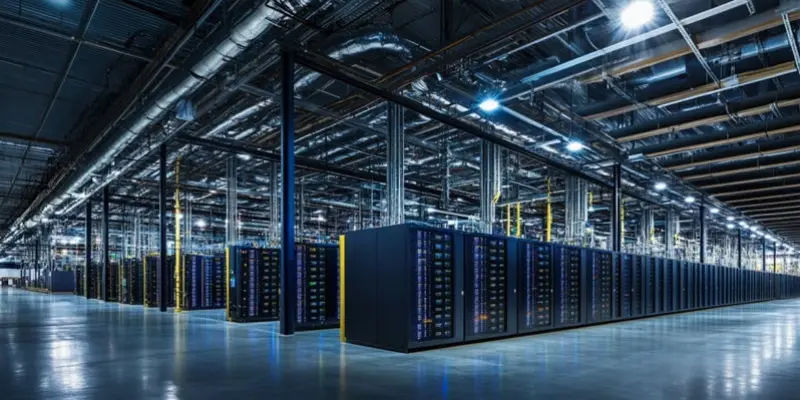In an era where the demand for data processing and storage solutions is skyrocketing, the International Finance Corporation (IFC) and six prominent international financial institutions have pledged a staggering $900 million to support the construction of a hyperscale data center in Johor Bahru, Malaysia. This significant investment underscores the vital role data centers play in the modern digital economy, swiftly addressing the growing need for advanced data infrastructure in the Asia Pacific region. The global data center operator, Yondr Group, is the key recipient of this massive funding, poised to undertake the ambitious project that will significantly bolster IT capacity.
A Major Leap in IT Capacity
The project, constituting the first phase of a larger data center campus, will deliver an impressive 98 megawatts of critical IT capacity on a 72.5-acre site. Upon completion, the entire campus is expected to provide 300 megawatts of capacity, establishing itself as one of the largest and most advanced data centers in the region. The partners, including DBS, Deutsche Bank, Global Infrastructure Partners (a part of Blackrock), HSBC, ING, and Natixis CIB, have all aligned to address the burgeoning demand with this cutting-edge infrastructure. When completed, this facility will change the landscape of data processing services in Asia Pacific and enhance Malaysia’s status as a critical hub for digital transformation.
The role of the IFC in spearheading this initiative has been instrumental. Initially, the IFC extended a $50 million bridge loan in May 2024 to prop up the early stages of the project and consequently attract additional financial backing. This initial step was vital for creating momentum and solidifying the financial framework of the project. With the increasing confidence among stakeholders, IFC has now committed an extra $100 million to ensure the project’s continued success. Such robust financial support further emphasizes confidence in the project’s future impact, drawing in more resources to finalize the expansive build.
Commitment to Sustainability
Yondr Group’s data center is not just about expanding IT capacity; it’s also a beacon of sustainability and eco-friendly practices in the tech industry. The facility is set to meet the stringent requirements of the Excellence in Design for Greater Efficiencies (EDGE) green building certification program. This commitment mirrors Yondr’s broader objective to achieve net zero carbon emissions by 2030. Adopting sustainable practices in constructing and operating data centers is becoming paramount as technological advancements push energy consumption higher.
This investment marks IFC’s third significant project in Malaysia since 2023, illustrating IFC’s dedicated mission towards fostering sustainable, resilient, and inclusive economic growth within the nation. By aligning strategic financial initiatives with environmental goals, IFC is reinforcing Malaysia’s pathway towards socioeconomic advancement while tackling climate change. Such initiatives highlight how sustainability and scalability can coexist, driving positive change in both the economy and the environment.
Moving Towards a Sustainable Future
In a time when the need for data processing and storage is rapidly increasing, the International Finance Corporation (IFC) has partnered with six major international financial institutions to pledge an astounding $900 million. This investment aims to fund the construction of a hyperscale data center in Johor Bahru, Malaysia. This substantial financial commitment highlights the crucial importance of data centers in today’s digital economy. The hyperscale data center will quickly address the increasing demand for cutting-edge data infrastructure in the Asia Pacific region. The recipient of this immense funding is Yondr Group, a global data center operator. This company is set to lead the ambitious project, which is expected to greatly enhance IT capacity. This development is a testament to the growing reliance on advanced data infrastructure in supporting the digital revolution. By reinforcing IT capabilities, the project will secure a firm foundation for the burgeoning digital needs of the region.

